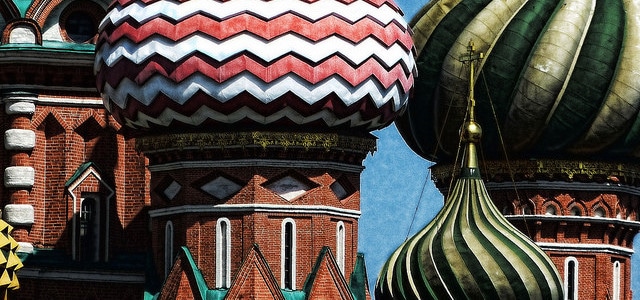Published
It is not all About Russia in WTO
By: Natalia Macyra
Subjects: Africa Regions Russia & Eurasia WTO and Globalisation

While Europe’s attention is focused on EU leaders fighting the Eurozone crisis and intriguing future Russia World Trade Organization accession, not many have noticed that two low-income countries (LICs) are about to become new members of the WTO. Vanuatu’s accession package has already been approved, and Samoa is going to submit its accession package at the ministerial meeting in December this year. The countries will become 154th and 155th members of the WTO and the multilateral trading system. Yet, it is important to talk about those small countries entering the Organization – is a WTO membership to their benefit, and could the participation of such small LICs even change the WTO and push it forward?
The accessions are warmly welcomed by Pascal Lamy, who recognizes this as evidence of a belief in the Institution, and as an opportunity to strengthen multilateral trading system. System, which many see as failing. Lamy said the accession of two new members illustrates “a confidence that the Organization enjoys a stable and predictable status in the global economy”. These words are comforting, although Lamy have said he would conclude the Doha Round by the end of this year with same conviction. Then, I start doubting if there really is such a bright and stable future ahead for the WTO and the multilateral system. Maybe Vanuatu’s and Samoa’s accessions are just back-up plans, as they are left out from bilateral free-trade talks, and GSPs for developing countries might be further eroded.
Still, the WTO membership might have a real positive impact on the economy by inciting difficult domestic reforms in the LICs, as well as positive contribution to the Organization through wider participation.
A recently published WTO Trade Policy Review on Cambodia reports of positive economic outcomes following WTO accession. Although, Cambodia has slightly better economic outlook than Vanuatu or Samoa, these LICs might follow the same trajectory. Yet, how will it work in practice? Vanuatu and Samoa are two of the smallest economies in the world, with GDPs of less than $800 million each and merchandise trade flows of slightly more than $700 million together, almost all of it being imports. As world’s 180th largest traders, they will hardly bring any change to other WTO members. But the membership brings advantages for their countries, through participation in services trade (where both countries have a surplus), especially in the transportation and travel sectors, the accessions will open up these small markets for foreign capital and investment with positive impacts on economic growth and on the living standard of the population.
However, the predictions of the effects of the WTO accession generally contain a lot of ‘maybes’ and ‘mights’. Nevertheless, these accessions are reminders of the incentives to join the WTO and the opportunities for development through trade, and even low-income micro-economies can significantly boost their trade capacities through adhering to WTO rules. Pascal Lamy is right in saying that these accessions brings the WTO closer to its universal character, something that critics say will hurt WTOs ability to make decisions and produce results. In the end, what are the advantages of having a universal organization that cannot make any decisions – with or without Samoa, Vanuatu or Russia?